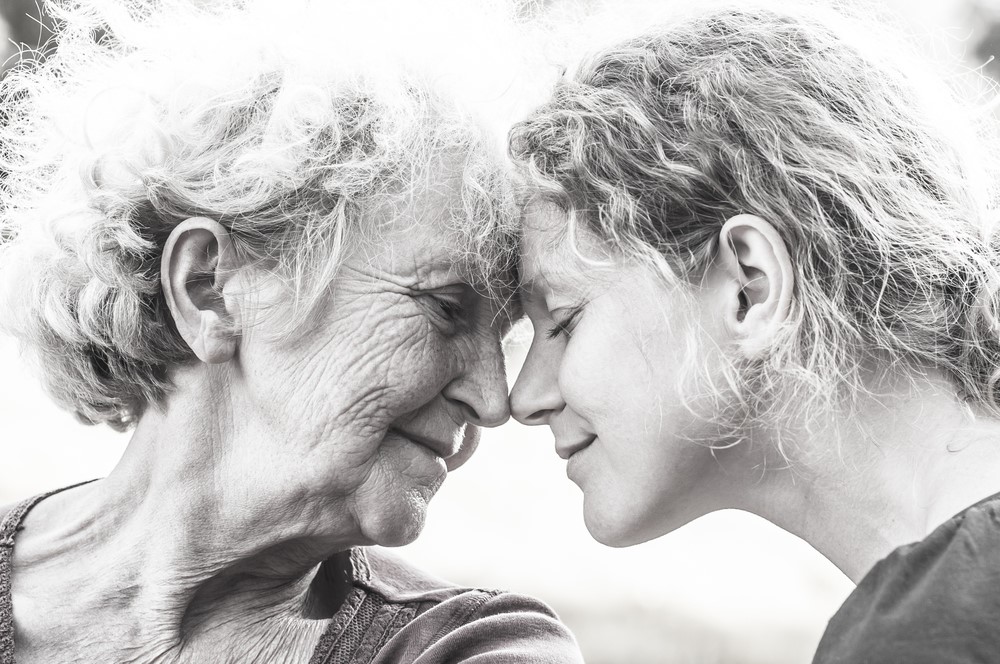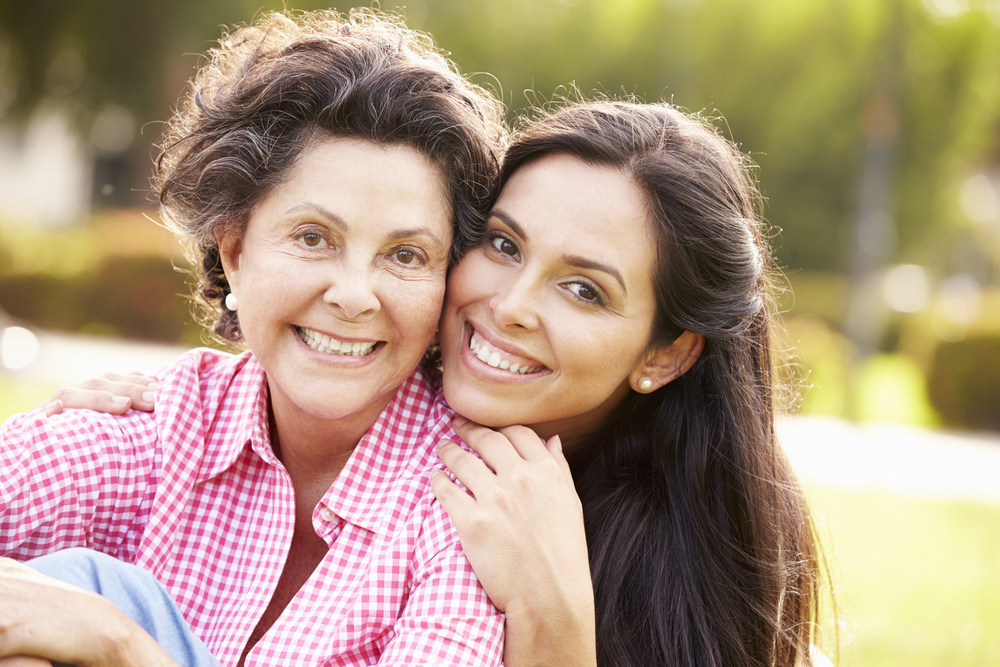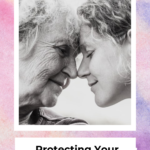
For many people, caring for a family member as they age is a natural decision. After all, most seniors want to remain in their homes for as long as possible and want to be near friends and family. There’s also a strong connection between women and caregiving.
We don’t just mean that women are more likely to be caregivers (although they are). Being a caregiver can also have dramatic impacts on a woman’s health, especially if they’re juggling many responsibilities.
Women and Caregiving
While a growing number of caregivers are male, females still make up the bulk of the caregiver population (61% according to AARP). A caring nature means that many females feel that providing duty is their responsibility.
What’s more, female caregivers are often involved in multiple care roles at the same time.
- Some fall into a category known as the sandwich generation, where they are caring for aging parents, while also raising their own children.
- Others may be responsible for multiple care recipients, such as both parents, a parent and a parent-in-law, or perhaps a parent and a grandparent.
- Some may be caring for their spouse as well as themselves and other family members.
There are other complexities too.
- For example, many caregivers still have a job, so they’re attempting to juggle the roles of working and being a caregiver.
- Some are aging themselves and must deal with the challenges of aging and their own changing needs, along with the needs of their family members.
- Some caregivers live in poverty. They may have few resources to meet their own needs, much less the needs of family members.
- There are also caregivers with physical or mental health challenges of their own.
- COVID-19 has created many additional challenges, as some caregivers now need to navigate working at home, having more people in the house at a given time, or at home schooling.
- Caregiving can last a long time. The average is currently around 4.5 years of care, but some people provide 10 years or more.
The challenges of caregiving apply to males and females. However, in light of Women’s History Month, this post specifically focuses on women and caregiving. This includes the challenges that women face and how female caregivers can take care of themselves.
The Impacts of Caregiving

Caregiving is our focus here at Kapok. We talk about the topic because it’s an important one and because caregivers often need support. After all, caregiving can be difficult. This is true even if your loved one is easy to get along with and only has minor health challenges.
Why Caregiving Matters
Caregiving is important. There’s no denying that.
In fact, informal care has become a critical component of the healthcare system in the United States, especially as the senior population continues to increase in size and the number of health care workers struggles to meet demand.
This pattern makes sense, as people’s ability to care for themselves tends to decrease with age. Many need extra support so that they can remain safe and healthy. Family caregivers are a critical support system for many seniors throughout the world.
Many families have few other options. They cannot afford to hire a caregiver and turning to a care facility isn’t viable.
So, adult children end up acting as a caregiver for family members, often in addition to a part-time or a full-time job and other responsibilities. The task often falls to women, partly because of social assumptions.
Female caregivers are also more likely to help with personal care tasks, like bathing. These tasks can often be physically and emotionally challenging.
The Challenges of Caregiving
Don’t get us wrong, there are good things about being a caregiver. Caregivers often report a sense of purpose and meaning. Being a caregiver offers a chance to feel more connected with your loved one, along with a way of ‘giving back’ to them.
Yet, the role can be overwhelming too.
One reason is that many caregivers have little to no training. This makes it much harder to meet the needs of family members and to figure out the best practices.
Often, caregivers essentially end up guessing – trying to figure out the best way forward from the information they can find online and from other caregivers.
Caregiving can have many costs too, including physical, emotional, and financial ones. Some of these effects are obvious, but others can creep up on you.
The Impacts of Caregiving

The first thing to know about caregiving is that it’s stressful.
While the amount of stress varies, caregivers often feel responsible for their loved one’s health and do all they can to keep the other person safe and happy.
This can become more emotionally difficult if the family member is stubborn or if they have a deteriorating health condition. It’s easy to feel like you’re failing or to think that everything would fall apart if you weren’t there.
Many caregivers struggle to meet their own needs. It can feel like there simply isn’t enough hours in the day or that the needs of the care recipient are always more important.
It’s easy to see how these patterns can become dangerous:
- Stress puts pressure on your body in many ways. While some stress is a normal part of life, long-term stress can have dramatic impacts on your physical and mental health, putting you at risk for a variety of conditions.
- Giving up your own needs, like going to the doctor, eating well, and resting can all impact your health, such as by increasing disease risk and decreasing your immune system.
- If you get in the habit of always putting the other person first, then it becomes even more difficult to meet your own needs.
- Caregivers who don’t care for themselves tend to be ineffective. They’re more likely to be short-tempered and may not be able to think clearly to resolve problems.
Some Health Implications
Despite the importance of caregiving, research is often limited.
One reason is that it is difficult to determine precisely how many informal caregivers are out there, or the specific challenges that they face. Nevertheless, there has been some research that looks at the impacts of caregiving on health.
Physical Health and Caregiving
One study found a significant issue of double jeopardy. Specifically, their results showed that caregivers are much more likely to be in poor health and to have problems that needed care themselves.
The physical strain of caring for a person is also significant and in some cases can mean that the caregiver actually hurts themselves in the process.
Even when this doesn’t happen, around 1 in 10 caregivers report that their physical health gets worse – and it is possible that many more experience negative changes to their physical health but are not aware of it.
Some specific health outcomes associated with caregiving include a higher risk of heart disease, greater rates of headaches, pain, lower immune system, and increased risk of chronic conditions.
Self-Rated Health
Some studies focus on how caregivers perceive their own health, using ratings like ‘very good’, ‘fair’, and ‘poor’. A report by the AARP shows a decline in self-rated caregiver health that isn’t matched by a similar change in the general population.
This shows that caregivers don’t just experience health challenges, but that these issues may be getting worse with time.
Problems with self-rated help appear to be worse for caregivers in intense or demanding caregiving situations. This includes those who aren’t getting any other support.
Working caregivers and some minority caregivers also report significant challenges with their health.
Mental Health
Research also indicates that caregivers have higher levels of depression and mental health problems. This is strongly connected to the functional status of the person that is being cared for. So, if they are doing worse, the caregiver will experience more mental issues and a higher degree of stress.
It’s likely that there are many other impacts as well, including many that caregivers themselves aren’t aware of. After all, when you spend so much time focused on somebody else’s needs, it’s easy to forget or ignore your own.
The Effects on Women
Studies often focus on caregivers as a general group, rather than comparing impacts for males and females. Even so, we know some things about the relationship between the health of women and caregiving.
For one thing, many of the impacts of caregiving on women are actually more significant than on men, perhaps because of the way that many women respond emotionally.
Social expectations of women may play a role here too. Because women are seen as natural caregivers, they may receive less support in their caregiving role compared to men.
We also know that female caregivers are more likely to experience physical and mental health problems than women who are not caregivers.
Feeling Overwhelmed?
Check out our Caregiving Consulting service for personalized support and guidance.
My Own Caregiving Experience
I’ve seen these patterns from personal experience as well.
I was a caregiver for a number of years and the intensity of the experience increased over time. I found that it was often difficult for me to leave the house and when I did there was pressure to get home as quickly as possible.
At the same time, the nature of my caregiving meant that it was essentially impossible for me to get unbroken sleep at night and I was constantly on edge, listening out for my name to be called. So then, it’s no wonder that the situation had a dramatic impact on my physical health and I’m still trying to recover from those impacts.
In my case, I was only a caregiver for around 4 years and the experience was only intense for the latter 2 years of that time. So, the impact that I experienced were less than what many others face.
What Can You Do?

The intensity of caregiving means that some health impacts are likely. But, you can still protect yourself and minimize the risk of serious problems.
Engage in Self-Care
Self-care is one of the most popular topics for caregiving. It’s also something that caregiver’s struggle with.
Still, if you want to be effective as a caregiver, taking care of your own health is absolutely critical. This includes your physical health and also your mental health.
Part of the problem with self-care might be the language. We’re often told to put our own needs first. That’s nice in theory, but it doesn’t work if your care recipient has urgent needs (like if they have dementia, are partly incontinent, or both).
Instead, it’s better to balance needs.
This can mean adjusting when and how you meet your needs, but not whether you do so. For example, you might need to rest when your family member is asleep or take time out rather than doing housework.
You should also take advantage of personal care items to help lower your stress levels and meet physical or emotional needs. For example, simply having a long bath with some chocolate can do wonders for your emotional well-being, as can sitting down with a good book.
Create Boundaries
You may need to draw boundaries too.
Remember, you’re not responsible for making your family member happy or for giving them a perfect life. Neither of those goals is possible anyway. Life is unpredictable and you can never actually make another person happy, as happiness is internally generated.
It’s easy to feel guilty at the idea of self-care or boundaries. Caregiver guilt is a common challenge – and you can get past it.
A good starting point is to remember that feeling guilty doesn’t mean you’re doing something wrong. Guilt arises for many different reasons, like because of social expectations or unrealistic goals you had for yourself.
Look for Social Support
At the same time, you also need to find ways to decrease your stress and the burden of caregiving.
If possible, this includes finding somebody to take over for you from time-to-time so that you can simply get a break. Such an approach is more viable in some situations than in others but it is critical that you try.
Often there will be a family member that can step in, even if it is just for a few hours every couple of weeks. Likewise, there may be some local resources that can support you and allow you to take a break.
There is also a range of support organizations that you can turn to and these can often be a good way to find other caregivers to interact with.
More than anything, it’s important to remember that you’re not alone and that your needs truly are important. It’s easy to forget these concepts when you are caring for someone, especially as it is a very isolating experience.
However, if you can take care of your own needs and draw on the experiences of others, you can potentially reduce many of the negative impacts that caregiving has – and be more effective as a caregiver at the same time.
Be Kind To Yourself
The final approach is a simple one. Be kind to yourself. Cut yourself some slack. You’re human and caregiving can be tough. You won’t always make the right decision. Sometimes every decision will feel like the wrong one.
If you’re struggling to get hold of this idea, check out our post on self-compassion or the video below.
Being kind to yourself like this isn’t just a nice thing to do. It can also help to decrease your stress levels and make it easier to manage challenges as they arise.


Leave a Reply